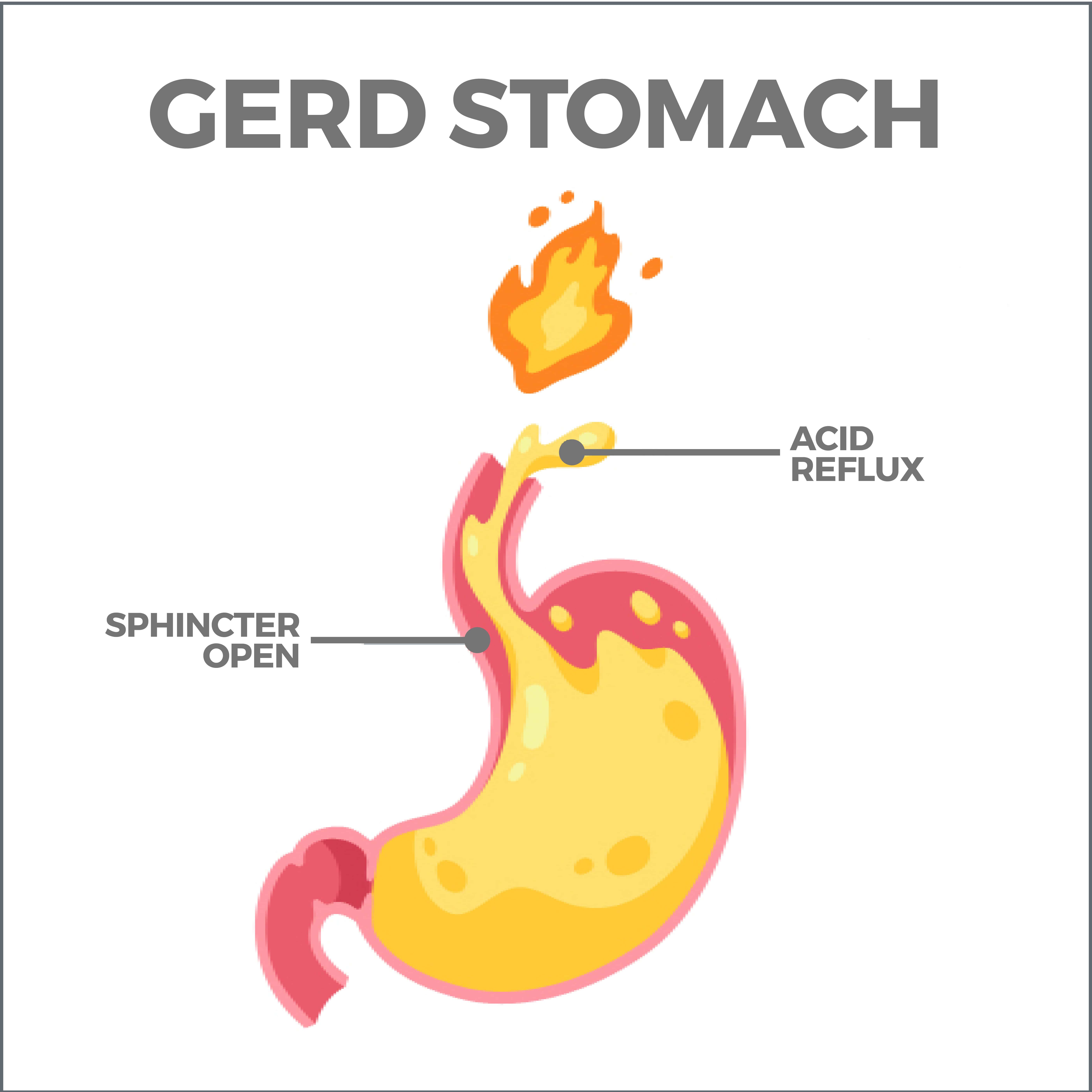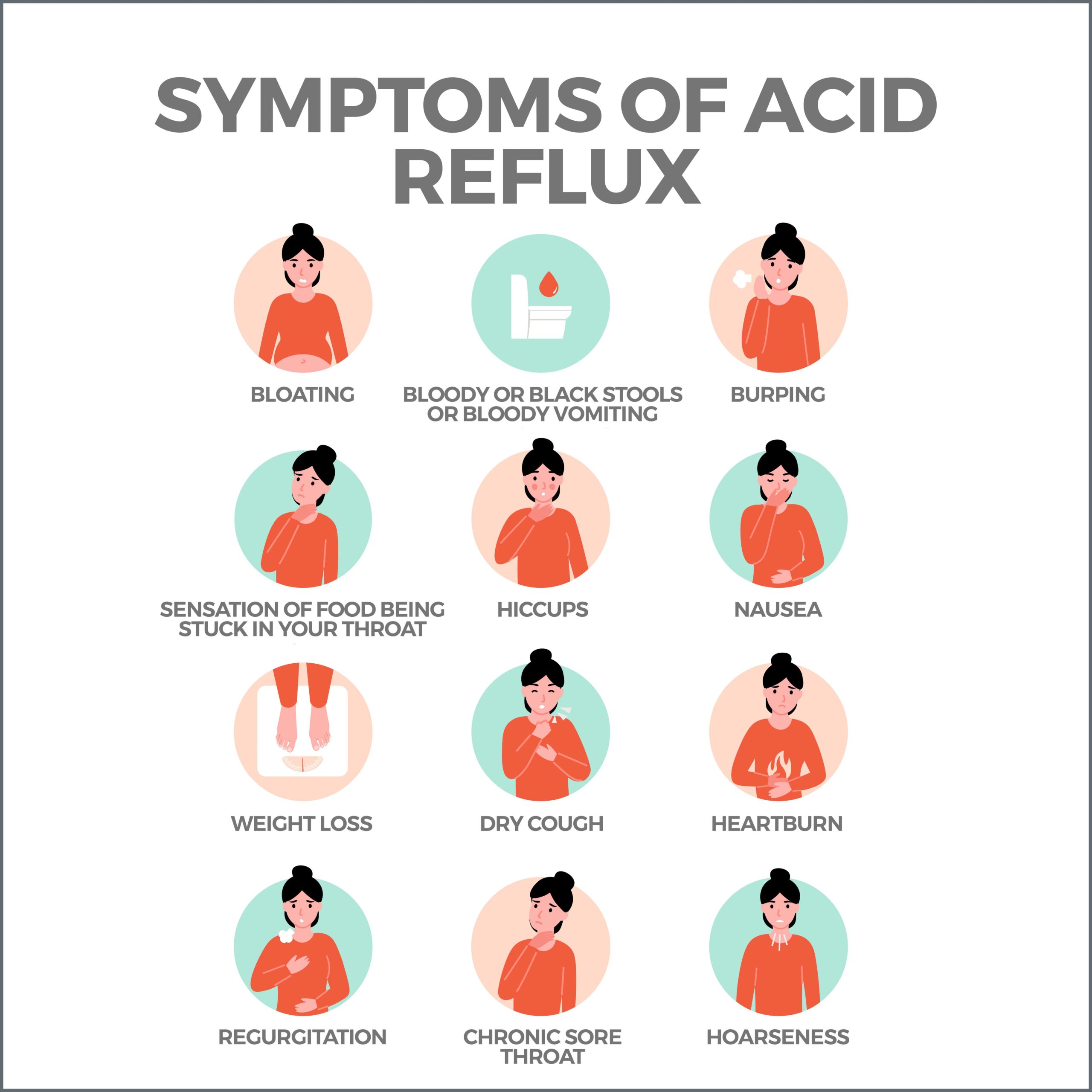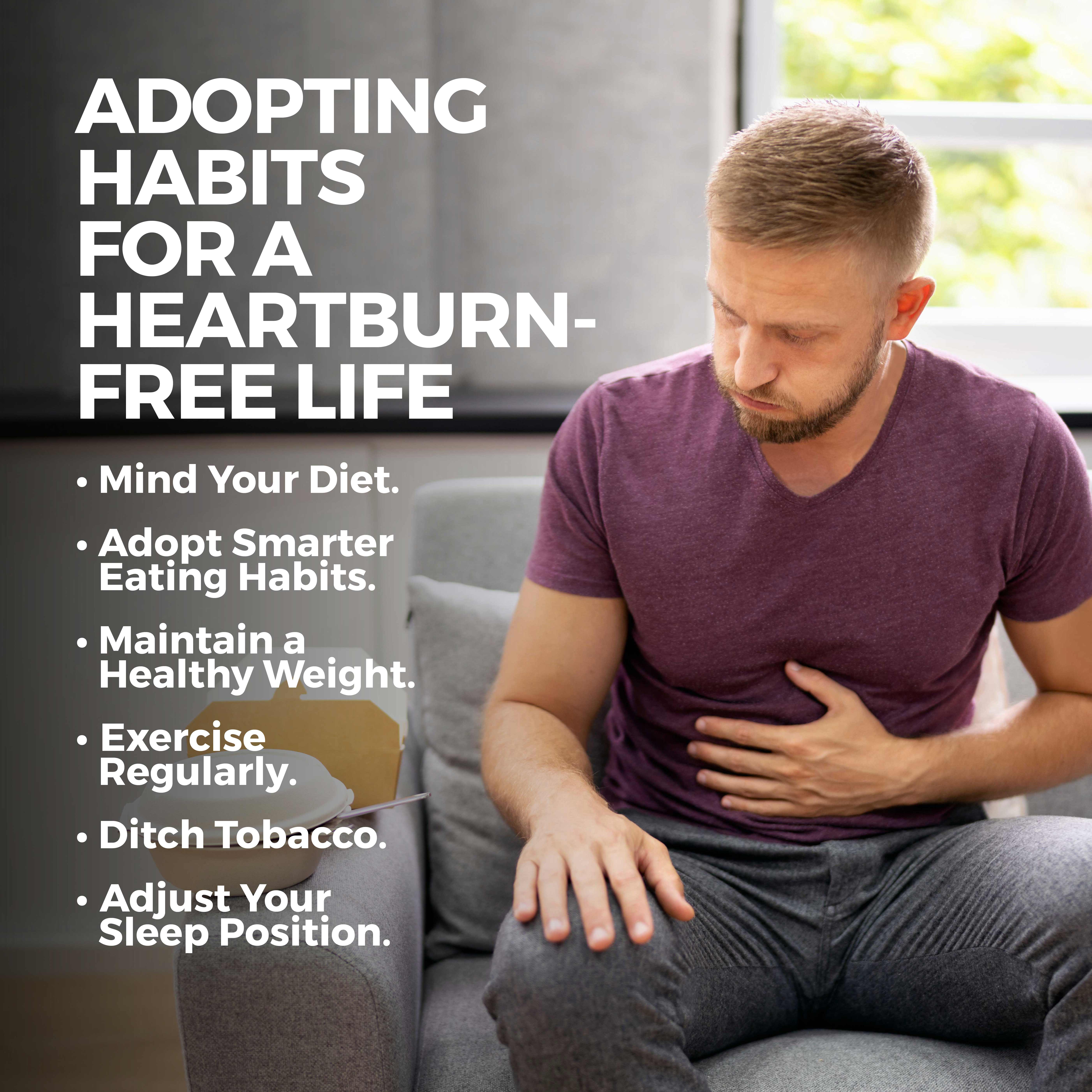
Is Frequent Heartburn Bad?
You have likely experienced heartburn before – that uncomfortable, burning sensation behind your breastbone, often after eating. It’s a fairly common occurrence. When heartburn becomes frequent or chronic, it’s no longer just a mealtime inconvenience. It’s a wake-up call that something might be wrong.
What Frequent Heartburn Tells You About Your Health
If you’re dealing with heartburn more than twice a week, it could signal gastroesophageal reflux disease (GERD). GERD is a chronic condition where stomach acid flows back into the esophagus – the tube connecting your mouth and stomach. This backward flow (acid reflux) can irritate the lining of your esophagus and cause heartburn.
While gastroesophageal reflux disease (GERD) is often linked with frequent heartburn, it’s essential to recognize that other underlying health conditions can also contribute to this uncomfortable sensation. Take a look at these conditions:
- Hiatal Hernia: A hiatal hernia is a condition where a part of your stomach bulges up through an opening (hiatus) in your diaphragm, the muscular wall separating your chest from your abdomen. This abnormality can allow acid to reflux into your esophagus, leading to heartburn. There are two types of hiatal hernias: sliding and paraesophageal. Sliding hernias are more common and occur when your stomach and the part of the esophagus that joins the stomach slide up into your chest. Paraesophageal hernias, while less common, are more cause for concern. They occur when part of the stomach pushes through the diaphragm beside the esophagus and can cause severe symptoms, including chest pain and heartburn.
- Obesity or Pregnancy: Excess body weight or pregnancy can increase the pressure on your abdomen, leading to acid reflux and heartburn. This pressure pushes on the stomach and can force stomach acid to reflux into your esophagus. Both obesity and pregnancy can cause frequent heartburn, and weight management or post-pregnancy recovery may reduce or eliminate these symptoms.

The Role of Medications and Foods in Heartburn
Recognizing the influence of certain medications and dietary choices is vital to understanding and managing frequent heartburn. The impact of these two factors is as follows:
- Certain Medications: Many medications can inadvertently lead to heartburn. This occurs because they relax the lower esophageal sphincter (LES), allowing stomach acid to escape into the esophagus and cause discomfort.
- These medications include certain painkillers, sedatives, and antidepressants. Each of these can potentially relax the LES at inopportune times, increasing the risk of acid reflux and heartburn.
- Dietary Choices: Your diet can significantly influence heartburn episodes. Certain foods and beverages can relax the LES, leading to increased heartburn risk.
- The potential culprits include chocolate, peppermint, fatty foods, coffee, and alcoholic beverages. Each can relax the LES, increasing the likelihood of acid reflux and heartburn.
- Additionally, some foods such as tomatoes and citrus fruits can increase stomach acidity, increasing heartburn risk.
By understanding these factors, you can better manage and treat frequent heartburn. Ignoring the impact of medication and diet can lead to long-lasting (chronic) discomfort and potentially severe health complications. If you’re experiencing persistent heartburn, contact your gastroenterologist to determine the root cause and create an effective treatment plan.

The Potential for Severe Health Issues
Persistent heartburn, if left untreated, poses more than just immediate discomfort. Your body’s recurring exposure to stomach acid can lead to more severe health problems over time. This is why frequent heartburn should never be brushed aside or normalized. These complications include:
- Esophagitis: Esophagitis is the inflammation of the esophagus, the tube that carries food from the throat to the stomach. When stomach acid regularly backs up into the esophagus, it can lead to irritation and inflammation, a condition known as reflux esophagitis. This condition can cause pain, difficulty swallowing, and, in severe cases, ulcers or “sores” in the esophagus.
- Esophageal Stricture: Continuous exposure of the esophagus to stomach acid can result in esophageal stricture, where the esophagus narrows or tightens. This constriction can make swallowing hard or painful, leading to weight loss and malnutrition due to reduced food intake. Esophageal strictures can significantly impact your quality of life and need medical treatment.
- Barrett’s Esophagus: Barrett’s esophagus is a serious complication of GERD, where the tissue lining the esophagus starts to resemble the lining of the intestine. This condition has no specific symptoms other than those associated with GERD. Still, it significantly raises the risk of developing esophageal adenocarcinoma, a rare but often deadly form of esophageal cancer.
Ignoring heartburn is not a sustainable strategy. Regular bouts of heartburn signal your body’s plea for help and attention. Frequent heartburn can evolve from a mere annoyance to a potentially life-threatening condition if left unaddressed.
Adopting Habits for a Heartburn-Free Life
When frequent heartburn has you dreading meals and disrupting your day-to-day, it’s time to make some lifestyle changes. Here are a few practical tips to help you prevent or minimize heartburn:
- Mind Your Diet: Certain foods can trigger heartburn by relaxing the lower esophageal sphincter, which allows stomach acid to escape into your esophagus. Limiting or avoiding these foods can significantly reduce heartburn:
- Spicy or fatty foods.
- Chocolate.
- Peppermint.
- Alcohol.
- Coffee.
- Tomatoes and citrus fruits.
- Adopt Smarter Eating Habits: How and when you eat can have a large impact on heartburn:
- Eat smaller, more frequent meals: Large meals can overfill your stomach, increasing the risk of reflux.
- Don’t lie down immediately after eating: Wait at least 3 hours after meals before going to bed or reclining to allow food to pass through your digestive system entirely.
- Chew slowly: Thoroughly chewing your food can aid digestion and reduce the work your stomach has to do.
- Maintain a Healthy Weight: Excess weight can pressure your stomach, forcing acid into your esophagus. If you are overweight, losing even a small amount of weight can relieve some symptoms.
- Exercise Regularly: Physical activity helps keep your digestive system running smoothly. But avoid vigorous exercise right after meals as it can induce heartburn.
- Ditch Tobacco: Nicotine in all tobacco products can weaken the lower esophageal sphincter, making heartburn more likely.
- Adjust Your Sleep Position: Elevate the head of your bed by 6 to 9 inches. This can help gravity keep gastric acid in the stomach, where it belongs.

By implementing these tips, you can significantly reduce the occurrence of heartburn and improve your quality of life. Remember that persistent heartburn is abnormal and should be evaluated by a gastroenterologist. Don’t let heartburn get in the way of enjoying your life to the fullest!
Seeking Help
Frequent heartburn is not just an inconvenience; it can signal more severe health issues, cause discomfort, disrupt daily life, and pose significant health risks if ignored. The above practical steps can go a long way in managing symptoms. If your heartburn becomes chronic or you’re experiencing severe discomfort, it’s essential to seek help from healthcare professionals.
The team of professionals at GastroMD can help you to reclaim your life. We are one of the leading gastroenterology practices in the Tampa Bay area. We perform many diagnostic procedures using state-of-the-art equipment in a friendly, comfortable, and inviting atmosphere where patient care is always a top priority!



